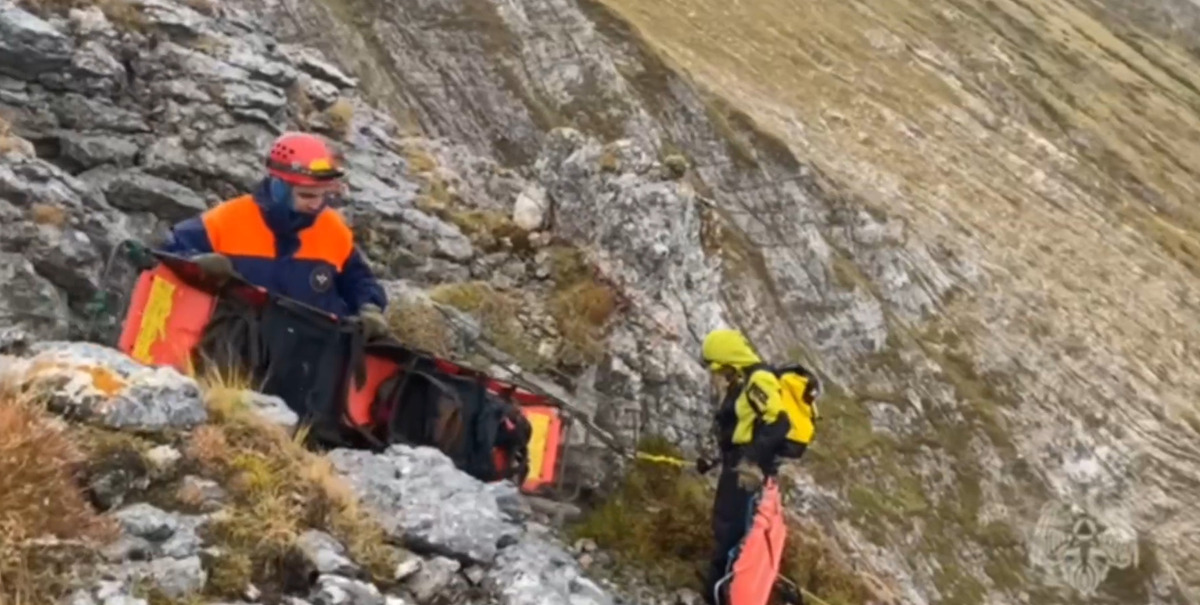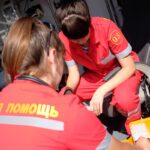Rescue workers continue operations on the northern slope of Mount Fisht in Adygea, where two climbers fell from a cliff the day before; one of them died.
On the evening of September 29, rescuers lifted the injured tourist from a dangerous rocky section to the mountain ridge. A medic from the rescue team provided him with necessary medical assistance.
The evacuation of the deceased from the rocky area is currently underway.
Considering the weather conditions, plans are being made to evacuate all tourists to Sochi by helicopter.
On September 29, during an ascent of Mount Fisht, two climbers fell. One died, the other was injured and unable to move independently. There are six people total in the tour group, and they are scheduled for evacuation. A Ka-32 helicopter delivered rescuers and a medic to the northern slope of Mount Fisht.
Mount Fisht
Mount Fisht is a prominent peak located in the Western Caucasus of Russia, part of the UNESCO World Heritage site. It is historically significant as the site where the Olympic flame was lit for the 2014 Sochi Winter Games. The mountain’s name is derived from its distinctive shape, which resembles a fish head when viewed from certain angles.
Adygea
Adygea is a republic in southwestern Russia, located within the North Caucasus region and entirely surrounded by Krasnodar Krai. Historically, it is the homeland of the Adyghe people, also known as Circassians, who have a rich cultural heritage dating back millennia. The republic is known for its mountainous landscapes, part of the UNESCO-listed Western Caucasus, and a complex history marked by the 19th-century Circassian genocide following the Russian-Circassian War.
Sochi
Sochi is a major resort city on the Black Sea coast in Russia, often called the “Summer Capital.” It gained international fame after hosting the 2014 Winter Olympics, which led to significant modern development. Historically, its subtropical climate has made it a popular health and tourist destination since the Soviet era.






